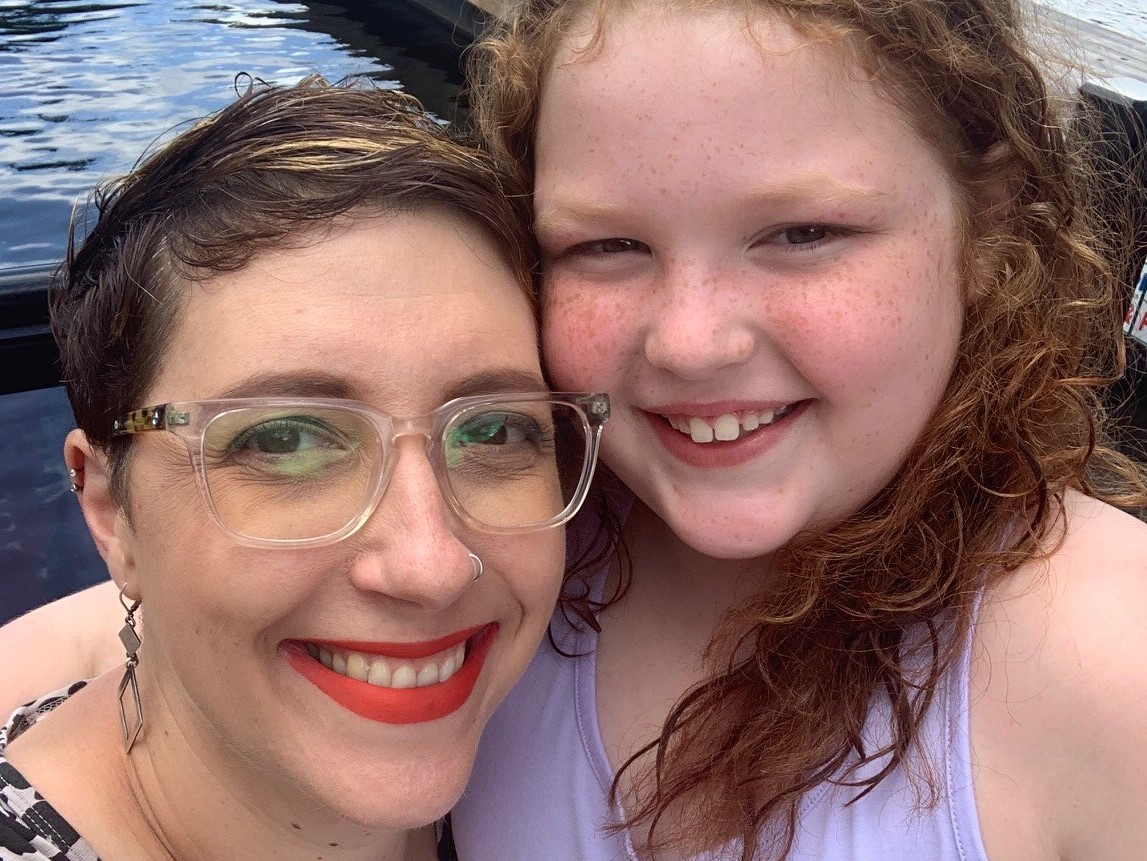Ariel Troster, by her own admission, spends her “whole day in front of a computer.” This helps her see every posting about a pharmacy offering walk-in COVID-19 vaccines, or new spots opening up at city clinics.

It’s also what enabled this 42-year-old Ottawa communications professional to help others find appointments for their shots. She’s done it a lot – estimating that she’s helped roughly 100 people since the beginning of the pandemic.
“I take it personally — as a citizen, as an activist, as someone who cares about my community — to get as many people vaccinated as possible,” she told Global News.

“I’ve helped book dozens and dozens of people in the last few months for vaccines at a time when it felt like The Hunger Games.”
It started with seniors on her street, then as stores began to reopen, included retail and service workers who she encountered in her neighbourhood.
“I was delighted to be able to book a bunch of personal services this week after things opened up a little bit. And I’m fully vaccinated,” she said.
“And the woman who is doing my eyebrows, I’m chatting with her. I make a point of asking, ‘So have you had a chance to book your first or second vaccine?’ with pretty much everyone I talk to.
“And she said, ‘Oh, well, I don’t have my first dose until July 15.’ And I was completely floored, like, ‘What do you mean?’”
The aesthetician told her that she had gone on the Ontario website looking for an appointment when she became eligible, and a mid-July appointment was all she could find at the time.

Get weekly health news
“And I said, ‘Well, you know, there’s dozens of pharmacies that have tons of Moderna vaccine right now. They’re begging for patients. You can go same-day. And she had no idea.”
Troster said a man who worked at the convenience store had a similar story, and she questions why so many people aren’t aware of how easy it can be to book appointments nowadays.
“I think we’ve got a situation where a lot of retail and service employees who are not in front of a computer all day, who might not be especially technologically literate,” she said. “They may not listen to the news or follow it on Twitter like I do. They perhaps went in and booked their initial vaccines on a day when they were eligible and there were not very many available. And they’re waiting.”

Troster says Ontario’s vaccine booking system is too difficult to use, requiring people to sign up at local clinics or individual pharmacy waiting lists over the phone or online.
“People are on 15 lists. They go on a list, they expect to get called and they never get called, or they go online to look for an appointment, there’s nothing there, so they give up.”
For some people, she just provided information. For others, she took down their details and booked appointments for them herself from home. For her neighbour, she just took out her phone and booked them on the spot.
While she has worked hard to book people vaccination appointments, Troster thinks there are others who have done even more. She points to a user on the Ottawa Vaccine Hunters Discord channel who goes by the screen name “ChickenNugs,” who she thinks has likely helped sign up hundreds of others.
In Ottawa so far, about 82 per cent of the eligible population has received at least one dose of vaccine — slightly above the national and provincial averages, which are around 79 per cent as of Friday, according to data from Ottawa Public Health. But Troster thinks Ottawa can still do better.
To get more people on board, Troster says employers need to help inform their employees of vaccination options and that primary care physicians need to get more involved. She’d also like to see more widely-publicized walk-in vaccination clinics in Ottawa – all to make it easier for people who don’t obsessively check the internet to get their shots.
The City of Ottawa has taken some steps already. All city-run clinics have begun to accept walk-ins for first doses of vaccines and people who live in any of the identified priority neighbourhoods can get their first or second dose at a pop-up clinic without making an appointment.
Others have pointed to the need for employers to get involved as well – in an interview with Global News, Dr. Gabriel Fabreau, a general internist and assistant professor at the University of Calgary, said that bringing doses directly to high-risk workplaces could go a long way in helping more people get vaccinated.
“It’s just logical to try to bring the firefighters to where the fires are,” he said.
And people do seem to want a shot. Although first shots have slowed down recently, a study released last week from Statistics Canada showed that most Canadians intended to get the COVID-19 vaccine, even if they hadn’t gotten it yet at the time of the survey, in mid-May. More than 90 per cent of those who hadn’t received a shot wanted one, the survey found.
Troster said she takes her mission to get people vaccinated personally because her nine-year-old daughter is too young to be vaccinated and she wants her to be able to go back to school in the fall.
“This is the biggest mass vaccination campaign we’ve seen in our entire lives. This is a pandemic that has killed so many people, that has imprisoned us in our homes,” Troster said, adding that the more people get vaccinated, the safer the community becomes for those who can’t get the shot.
“I think come hell or high water, we’re going to get vaccinated,” she said. “But I think in a lot of cases, it’s despite the system we were handed and not because of it.”








Comments
Want to discuss? Please read our Commenting Policy first.